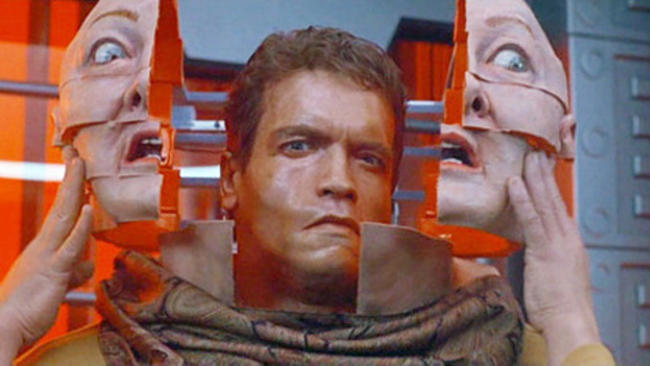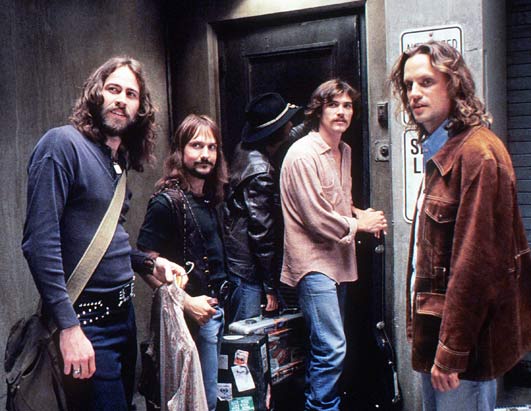Women have forever been linked to the idea of ‘bearer of meaning’ rather than ‘maker of meaning’ in Hollywood films. According to Laura Mulvey, author of the article “Visual Pleasure and Narrative Cinema”, women have forever been identified with the role of ‘passive observer’. As a result, men are permitted to live out their fantasies and obsessions by imposing them on the silent image of the woman. In basic terms, the male is identified as an active participant in the movement of the plot, whereas women have been typically assigned the role of inactive participant (she has no influence over the subject matter of the plot-she functions as a distraction for the male). As Mulvey has noted: “the woman’s visual presence (in narrative film) tends to work against the development of a story line, to freeze the flow of action in moments of erotic contemplation”.
The Objectification of Women
Women have rarely been respected inHollywoodfilms. Yes, there are numerous films about the empowerment of women and their drive and dedication for independence, but, for the most part, women have been relegated to the role of ‘eye candy’. They are rarely taken seriously and are usually vilified by the voyeuristic camera lens.
In typicalHollywoodfilms, men are in control of the gaze (that is, the audience sees what they see). Women are typically on the receiving end of that gaze. They are looked at, objectified and sexualized by the male protagonist. Women rarely have the power to reverse the gaze, and when they do, they are normally punished by the film’s narrative.
For instance, in Alfred Hitchcock’s 1963 classic ‘The Birds’ (a film about a group of birds that attack a small community), Tippi Hendren’s character, Melanie Daniels, is a strong, independent woman. When she first views Rod Taylor’s character, Mitch Brenner, she is intrigued. He has become an object for her satisfaction. She takes control of the gaze (not him), and as a result, he becomes objectified. As the film progresses, she becomes more infatuated with him and eventually proceeds to follow him on vacation. At one point, she is sitting out in a row boat in the middle of a lake, watching him from afar through a pair of binoculars. It is at this instant that the first bird attack occurs. There is no explanation as to why the birds attack in the film narrative, but if one studies it from a theoretical standpoint-one may understand that Hitchcock is punishing Melanie for attempting to alter the normal standards Hollywood has instilled for narrative film (In fact, if one studies Hitchcock’s filmography in detail, it seems as though he enjoyed reprimanding women for attempting to obtain subjectivity-Marion Crane in ‘Psycho’ is just one example). Melanie cannot be the maker of meaning (she cannot obtain subjectivity), but rather she must be forced back into patriarchal society’s defined role for her.
Subjectivity and Objectivity
Traditionally, this blatant representation of the sexes has consistently occurred throughout narrative cinema. However, in some instances, these two opposing factors have merged together and resulted in troubled representations of the female in question. In Ridley Scott’s 1979 film, ‘Alien’, Ripley (Sigourney Weaver) is the lone survivor of the alien attacks. Her entire crew has been killed and she has stood out as the subject of the film’s narrative. After successfully obtaining her subjectivity throughout the course of the story, the film begins to feel threatened by this idea and immediately (voyeuristically) objectifies her by showcasing her walking around in a state of undress. Instantaneously, her subjectivity is stripped from her and her role as object reemerges. In this one instant, the viewer no longer defines her as a subject. She is unwittingly undermining all that she has achieved during the course of the film. Yet, save for the final scene, Ripley is still an extremely strong character, and should be identified as a strong role model for women in film.
There are also many films in which women, desiring to be treated as subjects, have attempted to use sexuality to undermine the norms ofHollywoodnarrative. However, are they actually achieving this goal? No matter how much she accomplishes, if a woman is sexualized, isn’t that in some way undermining her role as a subject? Sexuality is a powerful tool, but is the woman still not being objectified as a result? If so, it is a shame that women are fooling themselves into believing that this type of sexual behavior will undermine the dominant ideology.
Conclusion
Hollywoodhas forever been built on illusion. As a result, many people are unaware of the dangerous portrayals of women in, not only films, but as well, magazines, television, and music videos. The idea that women are merely objects is an extremely wrong message to deliver to society. But yet, no matter how much one critiques or complains, women are still objectified in every form of entertainment. Sex sells and will forever be a strong selling point. Men have always been considered the maker of meaning in films, and as long as this continues, women will forever be objected to the voyeuristic gazes of the masses.



